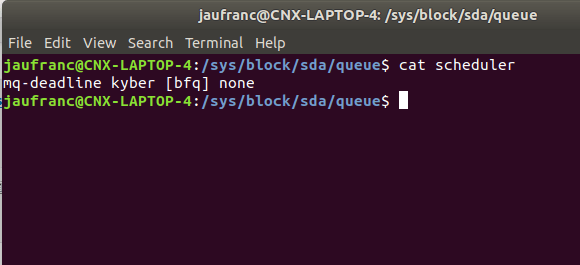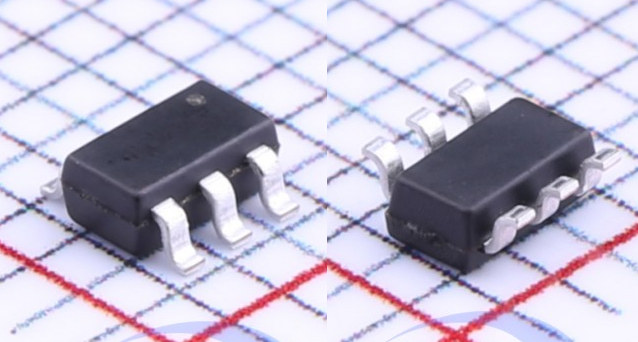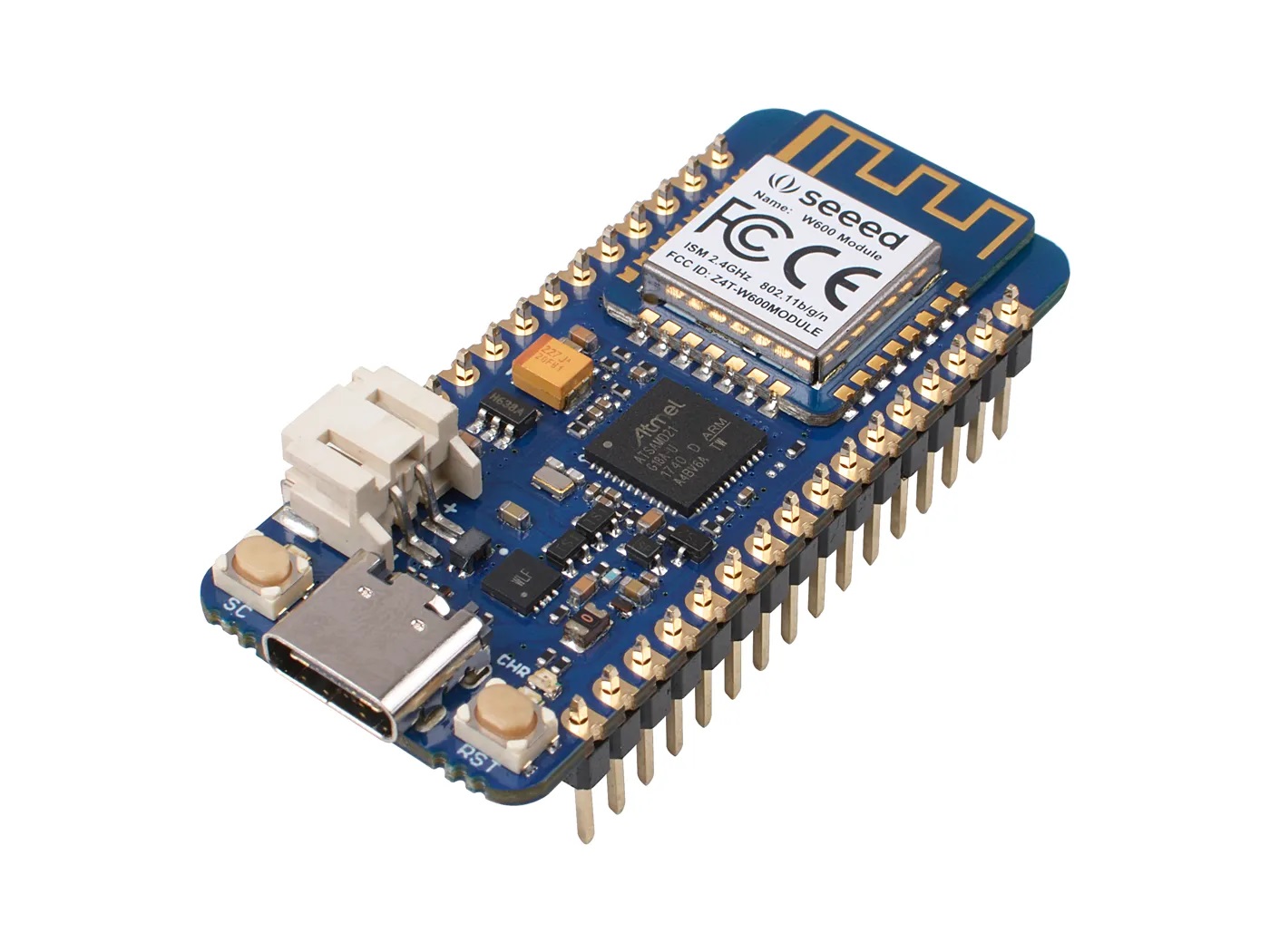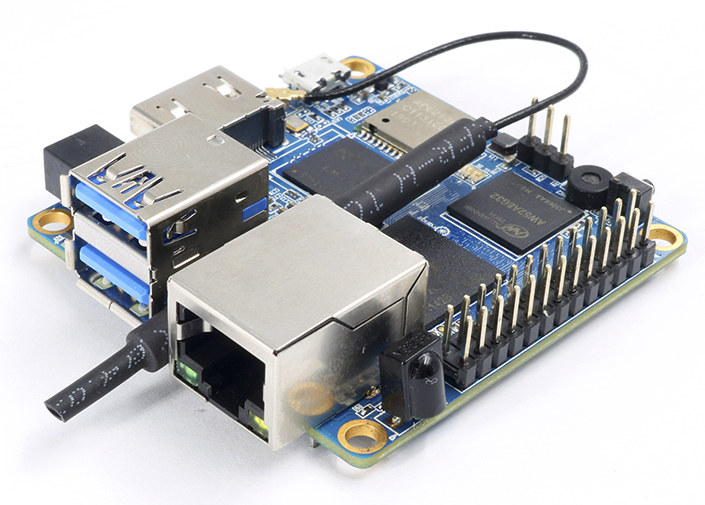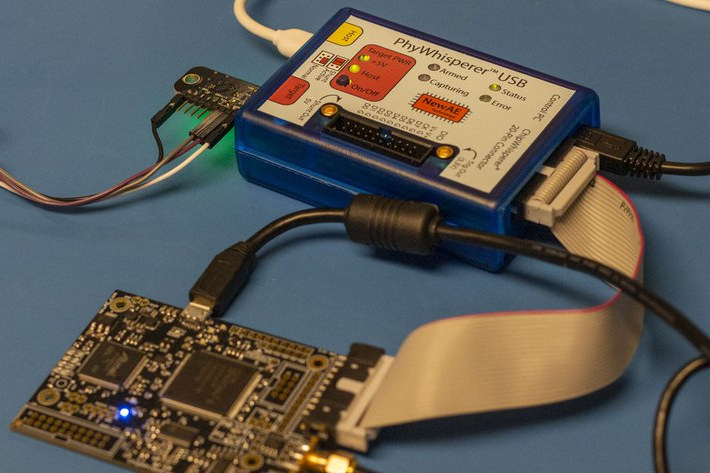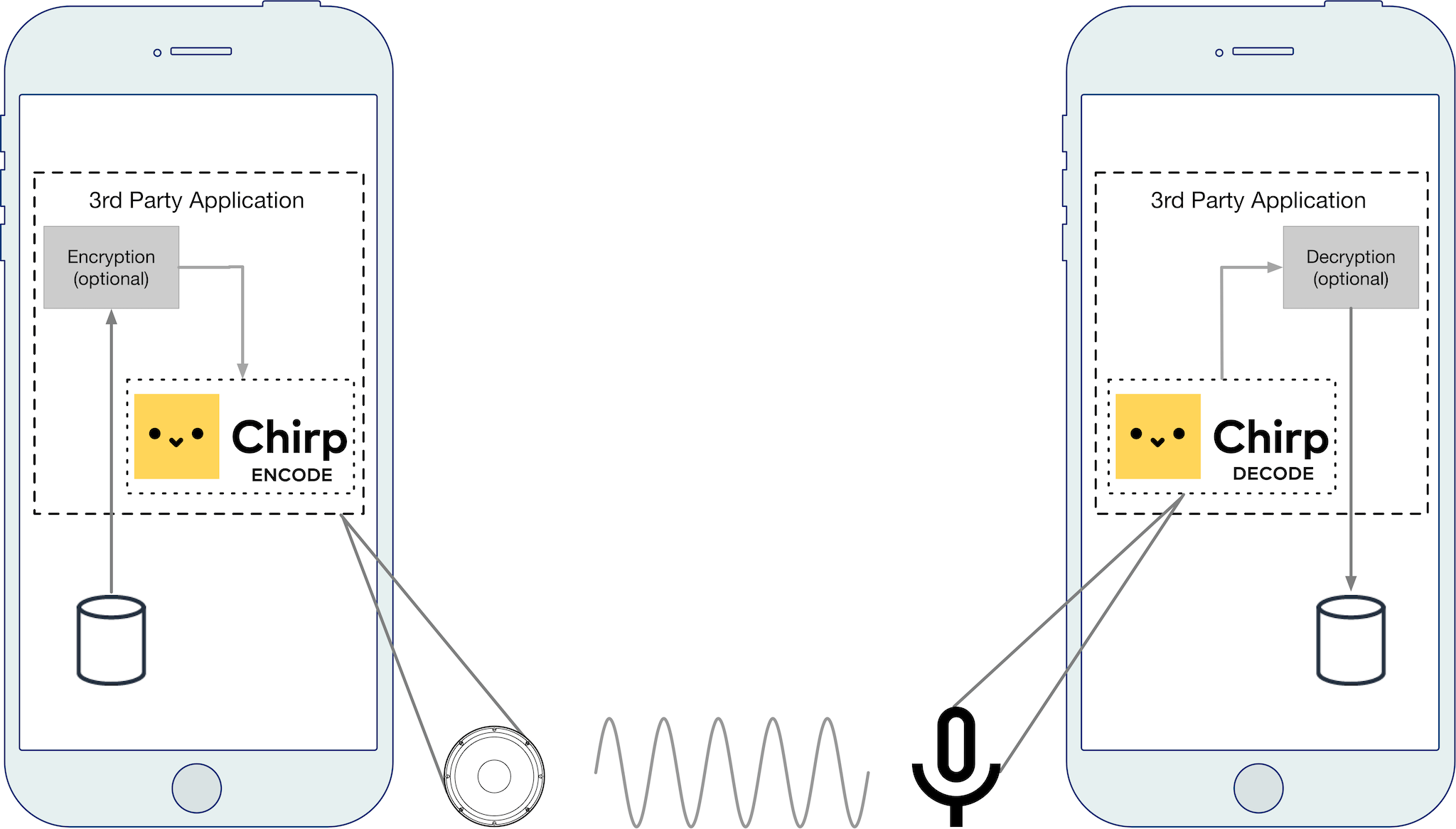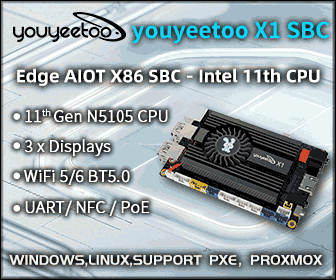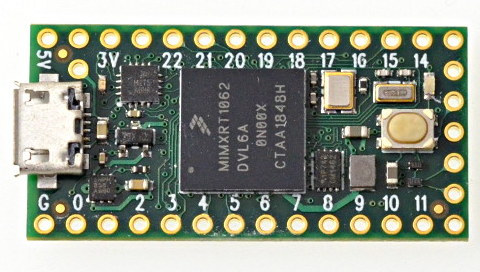Storage is normally the slowest part of a system, and operating systems such as Linux try to limit I/O access with “tricks” like caching. The I/O scheduler may also matter if you have multiple programs accessing the same drive, and in Linux 4.12 implemented two new multi-queue block I/O schedulers, namely BFQ (Budget Fair Queuing) and Kyber that are meant to improve the performance of the systems. If you’re using Linux 5.2 you may even get further improvements since performance tweaks make application start-up times under load to be up to 80% faster. I have never seen BFQ in action so far, but earlier this year, Paolo Valente, who is working for Linaro, made a video with an Acer Chromebook 15 showing Google Chrome launch time using the default mq-deadline schedule, and bfq-mq scheduler. The test involves writing a 1.5GB file to the drive with dd, and clicking on the […]
Padauk PMS150C “3 Cents” MCU Supports SDCC Open Source Toolchain
Back in 2016, I tried to find the cheapest MCU, and discovered Holtek HT48R002 8-bit RISC MCU @ 8MHz with 1K x 14-bit OTP memory, and 64 bytes of RAM that was selling for around 8.5 cents per unit for 1k orders at the time, and about the same now. But this morning, I read a post about sub-10-cents microcontrollers where cpldcpu details offering of several mostly little known vendors including Bojuxing Industrial, Eastsoft Micro, or Puolop. But Paudauk PMS150C especially caught my attention since price starts at $0.033, or 3 cents, and EEVBlog community has been working on getting SDCC open-source toolchain to work on the MCU. PMS150C MCU specifications: CPU – Processing unit with 79 “powerful” instructions Memory – 64 Bytes data RAM Storage – 1KW (1K x 14-bit) OTP program memory Peripherals 1x hardware 16-bit timer; 1x hardware 8-bit timer with PWM generation 1x general purpose comparator […]
$10 Wio Lite W600 Arduino Zero Compatible WiFi Board Follows Adafruit Feather Form Factor
Seeed Studio has just released the latest Arduino compatible Wio Lite W600 a combination of the W600 WiFi module mounted on the board and an Atmel SAM D21 Arm Cortex-M0+ microcontroller. The WiFi core is a W600 2.4 GHz module featuring the Arm Cortex-M3. The SAM D21 is the same chip used by the Arduino Zero, so the Wio Lite W600 is compatible with Arduino Zero. Basic Specs The I/O level is 3.3V, and there are 6 analog pins and 14 digital pins, as well as one UART, I2C, and ICSP port. The board is powered through a USB Type C port or a 3.5V–4.2V LiPo battery. The latest feature is the W600 module is CE/FCC certified and supports 802.11 b/g/n WiFi. The WiFi module also features 1MB on-chip flash to store and run freeRTOS operating system. Seeed Studio provides a full Arduino W600 library and demos for many wireless […]
Orange Pi Zero2 is a Tiny Allwinner H6 SBC with HDMI 2.0, USB 3.0, Ethernet & WiFi
Shenzhen Xunlong Software launched a refresh of their Orange Pi Zero board, namely Orange Pi Zero LTS, a couple of weeks ago. The company is now about to launch another SBC of the “Zero” family. Slightly larger than its predecessor, Orange Pi Zero2 is also quite more powerful with an Allwinner H6 quad core Cortex-A53 processor, and more versatile thanks to the addition of a USB 3.0 port, HDMI 2.0 video output, and a built-in microphone. Orange Pi Zero2 specifications: SoC – Allwinner H6 quad-core Arm Cortex-A53 processor with Arm Mali T720 GPU with support for OpenGL ES3.1/3.0/2.0/1.1, Microsoft DirectX 11 FL9_3 Memory – 512MB LPDDR3 (Allwinner AW52A8G32) Storage – 4GB eMMC Flash and microSD card up to 32GB Video Output – HDMI 2.0a port Video Decoding – 10-bit H265/HEVC up tp 4K60 or 6K30; H264/AVC up to 4K30; VP9 up to 4K30; AVS+/AVS up to 1080p60 Network Connectivity 802.11 […]
PhyWhisperer-USB Python Controlled USB 2.0 Sniffer Enables USB Security Testing (Crowdfunding)
PhyWhisperer-USB is a hardware USB sniffer & triggering platform that allows users to test the security of USB devices using side-channel power analysis and fault injection using a Python 3 interface, beside simply capturing packets. This has become especially important now as some USB devices include Bitcoin Wallets, FIDO2 keys, and encrypted drives with valuable data. PhyWhisperer-USB hardware specifications: FPGA – Xilinx Spartan 7S15 with 12,800 logic cells USB USB 2.0 Low/Full/High Speed mode PC connection – Micro-USB 2.0 HS port Host connection – Micro-USB port Target connection – USB-A female connector Trigger pattern – 1 – 64 bytes with mask Trigger delay – 0 – 1048576 cycles of 240 MHz internal clock derived from USB clock USB sniffer FIFO – 8192 bytes (FPGA block RAM, adjustable depending on FPGA utilization) Expansion – Spare digital I/O: 8 data pins, 1 clock pin routed to FPGA (on front panel) Clock output […]
Arduino Partners with Chirp to Enable Data-Over-Sound M2M Connectivity
Announced on August 12, 2019, Arduino has partnered with the London-based Chirp, a wireless data-over-sound software solution for machine-to-machine connectivity. The system has the ability to work online or offline, as long as there is a loudspeaker and a microphone available. The software works with the Arduino Nano 33 BLE Sense board in send and receive mode, while most Arduino MKR boards and Arduino Nano 33 IoT will also be supported by the SDK, but only to send data. The software and board are fully compatible with SDKs from a wide variety of platforms. The Nano 33 BLE Sense is available for purchase from the Arduino website, for $29.50. The sensor-rich Arduino Nano 33 BLE Sense is application-ready right out of the box, and Chirp is ready to start sending encoded data from a device fitted with an audio speaker, to the board’s built-in microphone, where it is encoded and […]
Teensy 4.0 Launched for $20 with a Much Faster NXP i.MX RT1062 Arm Cortex-M7 Processor
We last wrote about Teensy boards in 2016 for the launch of Teensy 3.5 & 3.6 boards powered by NXP Kinetis K64/K66 Arm Cortex-M4 microcontroller, and a longer form factor. Paul Stoffregen has now upped the ante with Teensy 4.0 featuring a much more powerful NXP i.MX RT1062 Cortex-M7 cross-over processor clocked at 600 MHz, and going back to the original, and more compact, form factor of earlier Teensy boards such as Teensy 3.2. Teensy 4.0 hardware specifications: SoC – NXP i.MX RT1062 Arm Cortex-M7 processor at 600 MHz with 1024KB RAM (512KB is tightly coupled), Storage – 2048KB serial flash (64KB reserved for recovery & EEPROM emulation) USB – 1x micro USB port for power and programming Expansion via through-holes and pads USB – 2x USB ports, both 480 MBit/sec Storage – 1x SDIO (4 bit) native SD Audio – 2x I2S Digital Audio, 1x S/PDIF Digital Audio Serial […]
Linaro Connect San Diego 2019 Schedule – IoT, AI, Optimizations, Compilers and More
Linaro has recently released the full schedule of Linaro Connect San Diego 2019 that will take place on September 23-27. Even if you can’t attend, it’s always interested to check out the schedule to find out what interesting work is done on Arm Linux, Zephyr OS, and so on. So I’ve created my own virtual schedule with some of the most relevant and interesting sessions of the five-day event. Monday, September 23 14:00 – 14:25 – SAN19-101 Thermal Governors: How to pick the right one by Keerthy Jagadeesh, Software Engineer, Texas Instruments With higher Gigahertz and multiple cores packed in a SoC the need for thermal management for Arm based SoCs gets more and more critical. Thermal governors that define the policy for thermal management play a pivotal role in ensuring thermal safety of the device. Choosing the right one ensures the device performs optimally with in the thermal budget. […]


